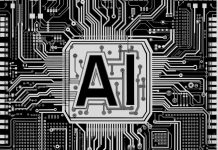Generative artificial intelligence (GenAI) holds immense potential to revolutionize government operations, making them more efficient and effective. A recent study projected that by 2033, GenAI could generate productivity improvements worth $1.75 trillion annually across all levels of government globally. GenAI tools are expected to augment The adoption of GenAI in the public sector will require strategic leadership, investment in upskilling and reskilling of employees, and fostering a culture of innovation and responsible use. Pilot projects play a crucial role in the early stages, allowing staff to gain familiarity with GenAI tools and explore their potential applications. Additionally, partnerships with tech companies, academia, and experts will be essential for governments to access the necessary skills and knowledge to scale GenAI deployments effectively. Overall, the journey towards becoming GenAI-enabled will be unique for each government entity, driven by its specific needs, goals, and level of AI maturity.
Harnessing Generative AI in the Public Sector
the work of public servants, allowing them to focus more on high-value tasks by automating routine activities. Implementing GenAI in the public sector doesn't necessitate significant upfront investments in technology; instead, an iterative approach focusing on experimentation and capability development tailored to the organization's AI maturity is recommended.
























